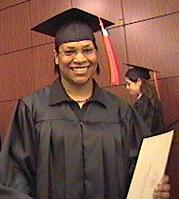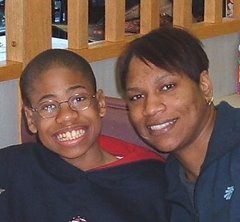Study: Autism has higher occurrence in polluted areas, study finds
By Maria Cone, (c) 2006, Los Angeles Times
Los Angeles --- Children with autism disorders in the San Francisco Bay Area were 50 percent more likely to be born in neighborhoods with high amounts of several toxic air contaminants, particularly mercury, according to a first-of-its-kind study by the California Department of Health Services.
The new findings, which surprised the researchers, suggest that a mother's exposure to industrial air pollutants while pregnant might increase her child's risk of autism, a neurological condition increasingly diagnosed in the past 10 years.
But the scientists cautioned that the link they found in the Bay Area is uncertain, and more definitive evidence would be needed before concluding that mercury or any other pollutant could trigger autism.
Gayle Windham, the study's lead researcher and senior epidemiologist in the state health department's environmental health investigations branch, called it "a single small study" and "a first look" at whether toxic pollutants play a role in the neurological disorder, which is often marked by poor verbal and communication skills and withdrawal from social interaction.Scientists have long wondered if the surge in diagnoses is due, in part, to environmental causes. Some of the increase comes from growing doctor and parent awareness, but experts say that cannot explain all of it.
For information, resources and practical strategies on autism visit:
www.child-autism-parent-cafe.com
www.AutismConcepts.co
Forget what you haven't heard… Family site shares news, resources, announcements and free or low-cost ways to help us manage day-to-day living with autism.
Crystal Brown

About Me

- Crystal
- AutismConcepts.com and Child-Autism-Parent-Cafe.com share a large collection of useful autism information, resources, and how-to articles written by authors who are touched by autism, offering practical solutions to families. Particularly minority and underserved families and caregivers who may not know what to do or where to go for help.
MJ And Me

Blog Archive
-
▼
2006
(213)
-
▼
June
(24)
- Autism Medical Insurance Discussion Group Forms
- Kaiser opens center for autistic children
- VESID - Changes to Part 80 Regulations (NYS)
- Key To Early Diagnosis Of Autism May Be In The Pla...
- Study: Autistic epileptiform regression
- School can be cruel for kids with autism
- Listen to Aurthor David Kirby Radio Interview On Line
- Are Digestive Enzymes Safe for Children?
- NY Report Denounces Shock Use At School
- New law calls for speech therapy for autistic chil...
- Doctors want to screen out embryos with autism
- Study: Autism in children can be detected as early...
- Clinic is all about 'talking, talking'
- Study: Autism has higher occurrence in polluted areas
- Autism Health Insurance Rights Bill Passes in New ...
- Study: Gene interaction raises autism risk in blac...
- Study: Family Support Service in the United States
- Researcher studies connection between autism, vacc...
- Autism Study on Promising Supplement Approved
- Free Autism Mini-Conference
- Study Raises New Concerns About Mercury in Tuna
- ALERT- AUTISM RECOVERY STORY ON NATIONAL TV
- State: Racial disparities in Lakewood special ed p...
- Please nominate us for a BlackWeb Award!
-
▼
June
(24)